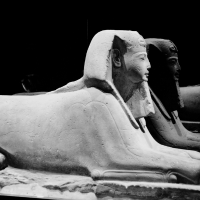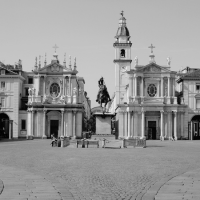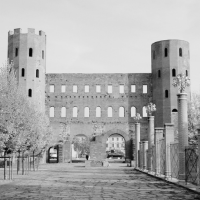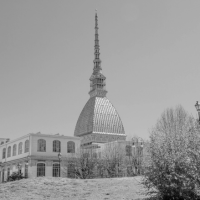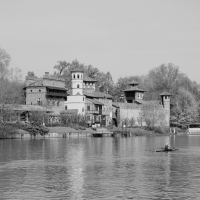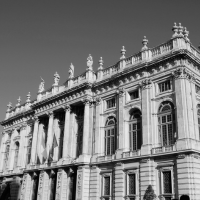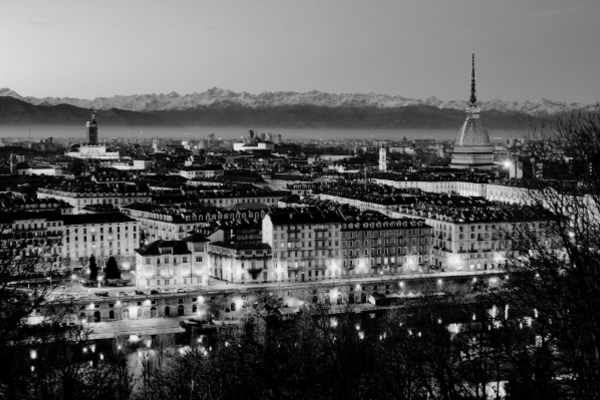NEW: We thank all those who have already sent their abstracts. We inform you that the deadline will be postponed and announced early next week in order to allow those who have notified the necessity to have more time to send their proposals.
Thank you for your patience: notice will be provided asap.
NEW: To register for the conference, please fill out the following form. Information is provided in the registration and deadline section.
WELCOME
MULTIPLE CRISES: CONFLICTS, CROSSINGS, MIGRATIONS IN POSTCOLONIAL/DECOLONIAL STUDIES
The European Association for Commonwealth Literature and Language Studies (EACLALS) 19th Triennial Conference will take place at the University of Turin, Italy, on 25-29 May 2026.
We look forward to welcoming you to the Aldo Moro downtown campus, a modern and accessible site in the heart of the city, where the Department of Foreign Languages, Literatures and Modern Cultures is based. The Eaclals Conference was last held in Italy, in Venice in 2008, and in Lecce in 1990.
Only paid-up members of EACLALS can submit panel- and individual paper- proposals. Discover how to join
Deadline for Panel and individual Abstract presentation: 15 September 2025
Acceptance notice: 10 October 2025
Kindly submit abstracts to the following email addresses:
Download the Guidelines_for_panel_and_abstract_presentations.
Deadline for Scholar Bursary Application: 10 October 2025. Download here the form and instructions.
The conference is organized in partnership between the University of Turin and COREP.
ACLALS: https://aclals.net/
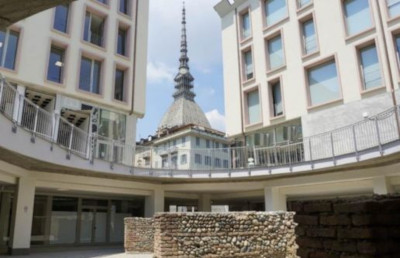 |
 |
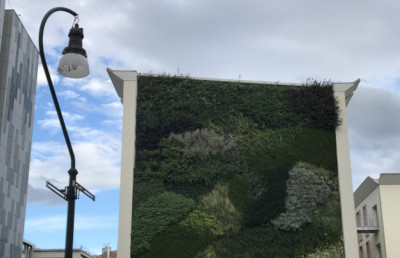 |
Venue: Aldo Moro downtown campus
Call For Panels and papers
Call for panels and papers
Arjun Appadurai (2004) claimed that the right to live is also a right to aspire. And yet, this right, which has been recently emphasized in the strongest terms by the United Nations in their 2023 report on the completion status of the Sustainable Development Goals, clashes against a wall of multiple crises. Since 9/11 2001 – which dumped on humanity multiple terrorist attacks and consequently triggered a quasi-planetary war on terror – we have witnessed financial crises, like the one in 2008 which impoverished people aspiring to a house; the Covid planetary pandemic; political uncertainties, which have shaken various countries in South America as well as in Europe; and wars that are still bloodying our world – such as the war in Ukraine and the war in Gaza, to name only the ones closer to Europe – while the more general environmental and climate crises encompass and accompany them all. What aspirations do we nurture, then? What aspirations do we grant to the next generations? And, with both Appadurai and Nussbaum, we might ask ourselves “why culture matters” and “why the humanities matter” – a question that, as Sustainable Development Goal on Quality Education testifies, is of vital importance to our future. Within this context, how can reconciliation processes effectively incorporate historical understanding to heal divisions perpetuated by colonial legacies? What insights do post- and decolonial literature provide regarding these challenges?
The ongoing wars in Ukraine (in the heart of Europe) and in the Middle East are leading to questions about the world’s geopolitical order and risk being more than just regional conflicts. Moreover, flows of migrants, refugees and people try to escape famine, warfare and the consequences of the ecological crises and to cross the borders of the “First World” every day, in search of survival or a better future. The so-called “journeys of hope” from Africa across the Mediterranean sea, involving migrants from the Indian subcontinent, the Middle and Far East trying to enter Europe, eco-refugees from the Pacific Islands moving towards Australia, New Zealand and the West Coast of America and walls, such as the one built to stop illegal passages from Mexico to the USA, the one around Palestinian enclaves, or the one dividing the island of Cyprus, are all signs of a constant forced mobility prompted by asymmetrical power relations, political, economic or otherwise, as Klaus Dodds claims in his Border Wars (2021), after the post-1989 wave of optimism, 9/11 brought a renewed focus on multiple forms of borders, especially exploited by autocrats and populist leaders.
As walls are erected and borders patrolled, the beginning of the New Millennium has confirmed the idea of a “liquid modernity” (Bauman 2000) and a global world in which knowledge, technology, information (Crawford 2021) and capitalist development have no boundaries. In this age of late capitalism (Jameson 1991) or post-capitalism (Drucker 1993), the migration of ideas, technologies and laborers is allowed only if it is functional to the financial and economic powers (Appadurai 2004; Nussbaum 2010). The gap between “North” and “South” of the world is however being undermined by environmental crises, the rise of new forms of capitalisms (India and China) and wars that, for the first time in a century, could turn again into worldwide conflicts which threaten to hinder our longstanding global efforts to reduce inequalities, a goal enshrined in the United Nations 2030 agenda.
Conflicts can take a variety of forms, including those about sectarianism, nationalism, and communalism, when communities within the same spatial context are torn by religious (Leidig 2020), ethnic and social tensions, from the Indian subcontinent to the marginalization of First Nations populations in Canada. In numerous postcolonial countries, the sense of crisis becomes a confrontational scenario, one in which different forces are engaged, often following ideological and nationalistic purposes (Jaffrelot 2007). However, from an etymological perspective, the word ‘crisis’ refers to “decision, judgment, outcome, turning point of a disease” (OED 2024), and in postcolonial contexts such meaning seems to mirror the commitment of writers and artists in their response to human and non-human exploitation. As multiple crises proliferate and attack societies, there are instantiations of postcolonial/decolonial resistance against the totalizing practices of dominance and destruction that haunt many counties in the world, thus fostering inclusive societies (Ndlovu-Gatsheni 2015; Akomolafe 2017). Such reactions bring to the fore the imaginative and inspirational power of the arts and the humanities at large to stimulate a rethinking of crises, in the hope to rebalance unfair social dynamics (Said; Barenboim).
Thinking in terms of human imagination can help us appreciate the ways in which narrative shapes the ways crises are told and understood. This is especially relevant when it comes to skepticism about scientific knowledge, which some critics have seen as the sign of a veritable crisis of the role of science in society (Horkheimer 1990). Such knowledge-making crises, meant as the questioning of accepted structures of knowledge within our societies, are manifested in several ways. For instance, recent phenomena like the spread of fake news have shown the potential to undermine trust in experts and institutions, eroding the capacity of individuals to make evidence-based choices as well (Hopf et al. 2019). This erosion of trust is especially relevant when it comes to major issues like climate change denial and environmental crisis. The rise in the number of people holding anti- or pseudo-scientific views about the global impact of anthropic activities has led to a renewed scholarly focus on the intersections between narrative and scientific thought, both with regards to the study of how scientific ideas are communicated via narrative means (Morgan and Wise 2017), and the examination of how scientific developments get represented in narrative (Caracciolo 2019). Ultimately, examining the narrative mechanics in which scientific knowledge is conveyed allows us to make better sense of complex crises such as climate change, offering a powerful tool to take action and mitigate its effects, as mandated by the United Nations with their dedicated Sustainable Development Goal on Climate Action.
Proposals analyzing the above-mentioned themes are welcome. Further topics, developed in Anglophone fiction, non-fiction, linguistics, translation studies, (digital) performative, visual and fine arts may also include:
 |
|
 |
|
 |
|
 |
|
 |
|
 |
|
Deadline for Panel and individual Abstract presentation: 15 November 2025
Acceptance notice: 22 December 2025
Kindly submit abstracts to the following email addresses:
Download the Guidelines_for_panel_and_abstract_presentations .
Bibliography
Bayo Akomolafe, These Wilds Beyond Our Fences: Letters to My Daughter on Humanity's Search for Home, North Atlantic Books, Berkeley CA, 2017.
Jan Assmann, The Price of Monotheism. Stanford UP, Stanford, 2010.
Arjun Appadurai, “The Capacity to Aspire: Culture and the Terms of Recognition”, in Rao, V. and Walton, M., (eds.) Culture and Public Action, Stanford University Press, Palo Alto, California, pp 59-84.
Zygmunt Bauman, Liquid Modernity, Polity Press, Cambridge UK, 2000.
Zygmunt Bauman, Wasted Lives: Modernity and Its Outcasts, Polity Press, Cambridge, 2003.
Marco Caracciolo, “Form, Science, and Narrative in the Anthropocene”, Narrative, 27 (2019), 270–289.
Kate Crawford, Atlas of AI, Yale UP, New Haven CT, 2021.
Fredric Jameson, Postmodernism or the Cultural Logic of Late Capitalism, Verso, London-New York, 1991.
Peter F. Drucker, Post-capitalist Society, Butterworth Heinemann, Oxford, 1993.
Henning Hopf, et al, “Fake Science and the Knowledge Crisis: Ignorance can Be Fatal”, Royal Society Open Science, 6 (2019), 1–7.
Max Horkheimer, “Notes on Science and Crisis”, Critical Theory and Society: A Reader, ed. by Stephen Eric Bronner and Douglas MacKay Kellner (Abingdon and New York: Routledge, 1990).
Christophe Jaffrelot, Hindu Nationalism: A Reader. Princeton, Princeton University Press, NJ and Oxford, 2007.
Eviane Leidig, "Hindutva as a variant of right-wing extremism." In Patterns of Prejudice. London: Taylor & Francis, 2020. https://doi.org/10.1080/0031322X.2020.1759861
Achille Mbembe, On the Postcolony, The University of california Press, Berkeley, 2001.
Achille Mbembe, Necropolitics, Duke UP, Durham, 2019.
Mary S. Morgan, and M. Norton Wise, “Narrative Science and Narrative Knowing. Introduction to Special Issue on Narrative Science”, Studies in History and Philosophy of Science Part A, 62 (2017), 1–5.
Sabelo J. Ndlovu-Gatsheni, "Decoloniality as the Future of Africa." History Compass, 13, 10. Wiley-Blackwell, New Jersey, 2015. https://doi.org/10.1111/hic3.12264
Martha C. Nussbaum, Not for Profit. Why Democracy needs the Humanities, Princeton UP, Princeto n, 2010.
Said, Edward W., Humanism and Democratic Criticism, Columbia UP, New York, 2004.
Guzelimian, Ara ed., Parallels and Paradoxes. Daniel Barenboim & Edward Said, Bloomsbury, London, 2002.
Plenary Speakers
|
|
Sandra Ponzanesi is Professor of Media, Gender and Postcolonial Studies in the Department of Media and Culture Studies/Graduate Gender Programme at Utrecht University, the Netherlands. She is founder and director of the PCI (Postcolonial Studies Initiative). Her research interest focuses on postcolonial critique from a feminist, comparative and interdisciplinary perspectives. She engages with issues such as the role of postcolonial intellectuals in Europe, the connection between digital media and migration, views on postcolonial cinema and the position of women in conflict zones. She is author of Paradoxes of Postcolonial Culture (Suny Press, 2004), The Postcolonial Cultural Industry (Palgrave, 2014) and Gender, Globalization, and Violence (Routledge, 2014). She has also co-edited many volumes such as Postcolonial Theory and Crisis (De Gruyter, 2024), Doing Digital Migration (AUP Press, 2024), Postcolonial Intellectuals in Europe (Rowman and Littlefield 2018) and Postcolonial Cinema Studies (Routledge 2014) among others. She is currently leading the project ‘Virtual Reality as Empathy Machine: Media, Migration and the Humanitarian Predicament’ funded by the Dutch Research Council (NWO). More info: https://www.uu.nl/staff/SPonzanesi |
|
|
Tabish Khair is a novelist, poet, journalist and academic – currently an Associate Professor at Aarhus University, Denmark. Born and educated up to his Masters in a small town of India, he has worked as a journalist in Delhi, after which he obtained a PhD from Copenhagen University and a DPhil from Aarhus University. He has also held fellowships at Delhi University, Jawaharlal Nehru University, York University (UK), Cambridge University, Leeds University, the International Writing Programme of Iowa University, and other universities in India and Hong Kong. Author of various award-winning and short-listed books, he recently published the novel, The Body by the Shore (HarperCollins and Interlink, 2022) and the polemical study, Literature Against Fundamentalism (Oxford University Press, 2024). A new novel, Drown all the Refugees, is scheduled to come out in 2026. |
|
|
"Memory Wars and the War on Palestinian Memory: Ongoing Catastrophe, Trauma and Decoloniality between Crisis and Possibility" - Plenary: May 26, 14:00 - 15:00 |
|
|
Prof. Biancamaria Rizzardi is Full Professor of English Literature at the University of Pisa, where she teaches English Literature and Literatures of the English-speaking Countries. Her areas of special expertise, and the fields in which she has most frequently performed her research activities, are: Shakespeare and the Elizabethans, Romantic and Late Romantic Poetry, Victorian Poetry, Postcolonial Studies, Canadian-British Literary Comparisons, Canadian Poetry, Translation Studies. She is the editor of the Diagosfera series published by ETS, Pisa.Since September 2024, she has been the Principal Investigator of PRISMA (Pondering Risk and Imagining Resilience). A Digital Atlas of Seismic and Volcanic Events in Literature, funded by the University of Bari (Italy). This project is part of a broader project on earthquakes and volcanoes within the European RETURN partnership (Multi-risk Science for Resilient Communities under a Changing Climate). PRISMA follows a line of research focused on seismic and volcanic phenomena. Based on close cooperation between literary scholars, geologists, and volcanologists, the project investigates the representation of volcanoes, eruptions, and earthquakes in different literatures and cultures, exploring the intersection of various fields of knowledge and languages with the literary word. |
PROGRAMME
PROGRAMME
The programme of the conference will be published in October 2025.
BOOK OF ABSTRACTS
BOOK OF ABSTRACTS
More info will be provided soon.
Conference fees
CONFERENCE FEES
Early registration fees: the registration form must be sent by 23 January 2026 - payment is due by 12 February 2026
Academic Staff (PO, PA, RU, RTT, RTD-A, RTD-B): early bird € 280
PhD candidate, post-doc, grants holders, students: € 150
Standard registration fees: the registration form must be sent by 14 February 2026 - payment is due by 2 March 2026
Academic Staff (PO, PA, RU, RTT, RTD-A, RTD-B): € 330
PhD candidate, post-doc, grants holders, students: €170
Registration & Deadlines
Registration & Deadlines
Please note that you must be a current member of EACLALS to present at the conference. The conference registration rate does not include the EACLALS membership fee. If you are not a member yet or you have not renewed your 2023 EACLALS membership, you can do it through the EACLALS website: https://www.eaclals.com/become-a-member. Participants who already belong to another branch of ACLALS should opt for the Joint Membership rate.
Deadline for Panel and individual Abstract presentation: 15 September 2025 14 November 2025
Acceptance notice: 10 October 2025 22 December 2025
Kindly submit abstracts to the following email addresses:
Deadline for early bird registration: 24 October 2025 23 January 2026
Early registration payment due by 14 November 2025 12 February 2026
Deadline for standard registration for speakers to the conference: 12 November 2025 14 February 2026
Standard registration payment due by 28 November 2025 2 March 2026
Deadline for standard registration for non-speakers to the conference: 12 November 2025 14 February 2026
Standard registration payment due by 28 November 2025 2 March 2026
Deadline for registration to the social dinner and welcome drink: due with the registration to the conference
Deadline for Scholar Bursary Application: 1 January 2026
Download here the form with instructions.
Please be aware that registration and proof of payment are mandatory to be included in the programme.
Please fill out the following form to register and provide the information required to issue the payment slip.
Registration for the conference will be confirmed by the conference secretariat (
EACLALS 26 PAYMENT MODALITIES
- Information will be sent via mail by the secretariat.
All costs for any accompanying people joining optional conference services must be included in the payment.
Scholar Bursary Application
Scholar Bursary Application (extended)
EACLALS offers a limited number of travel bursaries for postgraduates and early-career scholars: €350 (UK/Europe) and €500 (elsewhere), covering the conference fee and contributing to travel and accommodation costs. Applicants must be current EACLALS members and have had their paper accepted; priority will be given to members and participants from non-EU countries.
-
Extended deadline: 1 January 2026
-
Notification of results: 20 January 2026
-
How to apply: Please complete the bursary form (download here), and send it to Christine Lorre (
Questo indirizzo email è protetto dagli spambots. È necessario abilitare JavaScript per vederlo. ) and Radhika Mohanram (Questo indirizzo email è protetto dagli spambots. È necessario abilitare JavaScript per vederlo. ) by 1 January 2026.
For all updates, please check the conference website regularly.
Social Programme
Social programme
Wednesday 25 May h. 6:00-8:00 p.m. Welcome Drink
Cost: 20,00 €
Please, register by 14 february 2026.
Please note that it will not be possibile to pay the dinner on site.
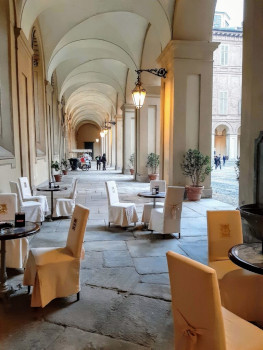
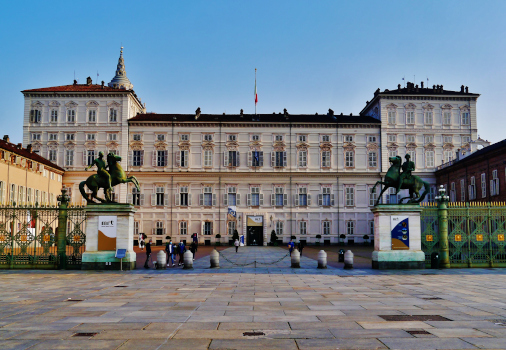
AIA delegates are invited to a Welcome Drink, which will take place at Caffè Reale, Piazzetta Reale 1 (inside the courtyard of the Royal Palace). Local wines and a variety of Piedmontese appetisers will be served in the beautiful surroundings of the royal gardens.
Wednesday 27 May h. 8 p.m. Social Dinner
(not included in the fee, by reservation only)
The social dinner will be held at Fiorfood restaurant, Galleria S. Federico 28.
https://fiorfood.it/
Cost: 65,00€
Please, register by 28 November 2025.
Please note that it will not be possibile to pay the dinner on site.
This restaurant is located in one of the historic shopping arcades of Turin, Galleria San Federico, a few steps from Piazza Castello and Piazza San Carlo.
ORGANIZING committee
ORGANIZING COMMITTEE
Postcolonial Scholars and EACLALS members:
Scientific Committee
SCIENTIFIC COMMITTEE
- EACLALS Board
- Esterino Adami (Università di Torino)
- Franco Arato (Università di Torino)
- Roberto Beneduce (Università di Torino)
- Elisabetta Benigni (Università di Torino)
- Paolo Bertinetti (Professore Emerito, Università di Torino)
- Marzia Casolari (Università di Torino)
- Carmen Concilio (Università di Torino)
- Alessandra Consolaro (Università di Torino)
- Pietro Deandrea (Università di Torino)
- Irene De Angelis (Università di Torino)
- Paola Della Valle (Università di Torino)
- Daniela Fargione (Università di Torino)
- Chiara Lombardi (Università di Torino)
- Filippo Monge (Università di Torino)
- Pier Paolo Piciucco (Università di Torino)
VENUE
Venue
The conference will be held at the Department of Foreign Languages, Literatures and Modern Cultures of the University of Turin, at Complesso Aldo Moro, Via S. Ottavio 18, Turin, Italy.
Venue: Aldo Moro downtown campus
TRAVEL & ACCOMMODATION
TRAVEL & ACCOMMODATION
TRAVEL
How to get to Turin
For a clickable map please point your browser to Turin Map
BY PLANE
Turin's Caselle International Airport (15 km from city center) has regular connections with the major Italian airports
Other airports within easy reach are those of Milan (Malpensa and Linate) and Genoa.
Transfer from/to Torino airport : by bus, by train
Turin Airport Flight timetable
BY TRAIN
Trenitalia's official timetable
BY BUS
Flixbus official website
LOCAL TRANSPORT
To view local fares for Turin and suburbs click here.
ACCOMMODATION
Below you will find a list of hotels near the conference venue: please use the code EACLALS 2026* for your reservation.
***** Grand Hotel Sitea*, Via Carlo Alberto 35 (1,2 km)
***** Principi di Piemonte* | UNA Esperienze, Via Piero Gobetti 15 (1,4 km)
**** NH Collection Torino Piazza Carlina*, Piazza Carlo Emanuele II 15 (600 m)
**** Hotel dei pittori, Corso Regina Margherita 57 (750 m)
**** Opera35 Boutique Hotel, Via della Rocca 35 (950 m)
**** Hotel Victoria Torino, Via Nino Costa 4 (1 km)
**** Hotel NH Torino Santo Stefano, Via Porta Palatina 19 (1,3 km)
**** Hotel Concord Torino*, Via Giuseppe Luigi Lagrange 47 (1,5 km)
*** Piazza Vittorio Suites, Piazza Vittorio Veneto 13 (450 m)
*** Santa Giulia Art & Wine Residence*, Via Santa Giulia 41 (550 m)
*** Hotel Alpi Resort, Via Alfonso Bonafous 5 (700 m)
*** Piazza Castello Suite, Piazza Castello 153 (950 m)
*** Hotel Chelsea, corner between Via Cappel Verde 1D and Via XX Settembre 79E (1,1 km)
*** Hotel Antica Dogana, Via Corte d’Appello 4 (1,4 km)
*** Best quality Hotel Gran Mogol, Via Guarino Guarini 2 (1,4 km)
*** Hotel Roma e Rocca Cavour, Piazza Carlo Felice 60 (1,6 km)
*** Green Class Hotel Astoria, Via XX Settembre 4 (1,7 km)
** Hotel Napoleon, Via XX Settembre 5 (1,6 km)
UNIVERSITY RESIDENCE
Residenza Universitaria EDISU Verdi – Via Giuseppe Verdi 15 + 39 011 6531300
https://www.edisu.piemonte.it/en/services/living/congress-and-events-accomodation
Residenza Universitaria EDISU Cappel Verde – Via Cappel Verde 5 + 39 011 6531430
https://www.edisu.piemonte.it/en/services/living/congress-and-events-accomodation
Residenza Universitaria EDISU Olimpia – Lungo Dora Siena 104 + 39 011 08292500
https://www.edisu.piemonte.it/en/services/living/congress-and-events-accomodation
CAMPLUS, Residence on Campus (Aldo Moro, Via S. Ottavio, 18)
https://www.camplus.it/en/city/turin/camplus-aldo-moro/
More opportunities are to be found in the central area of the City.
TOURIST INFO
TOURIST INFO
Turin, nestling below its hills and embraced by the river Po, is a city with numerous parks which immerse it in greenery. It owes much of its charm to its magnificent geographical position at the foot of the western Alps. Turin is more than 2000 years old, evidence of which can be seen in its ancient and more modern historical monuments: the ancient Roman gates, the Royal residences, the palazzi and museums. The first capital of Italy, it is full of parks, tree-lined avenues and offers its river, the mountains, historic restaurants and cafés, long arcaded streets and multiethnic neighbourhoods, the moderate splendour of the Piedmont baroque and the originality of modern and contemporary architecture.
Touristic information are available on www.turismotorino.org.
|
|
Museo Egizio |
Piazza San Carlo |
|
Porte Palatine |
Mole Antonelliana |
|
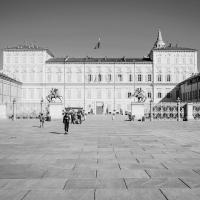 Palazzo Reale |
|
Palazzo Madama |
|
|
|
|
|
Turin by night from Monte dei Cappuccini |
||
SPONSOR
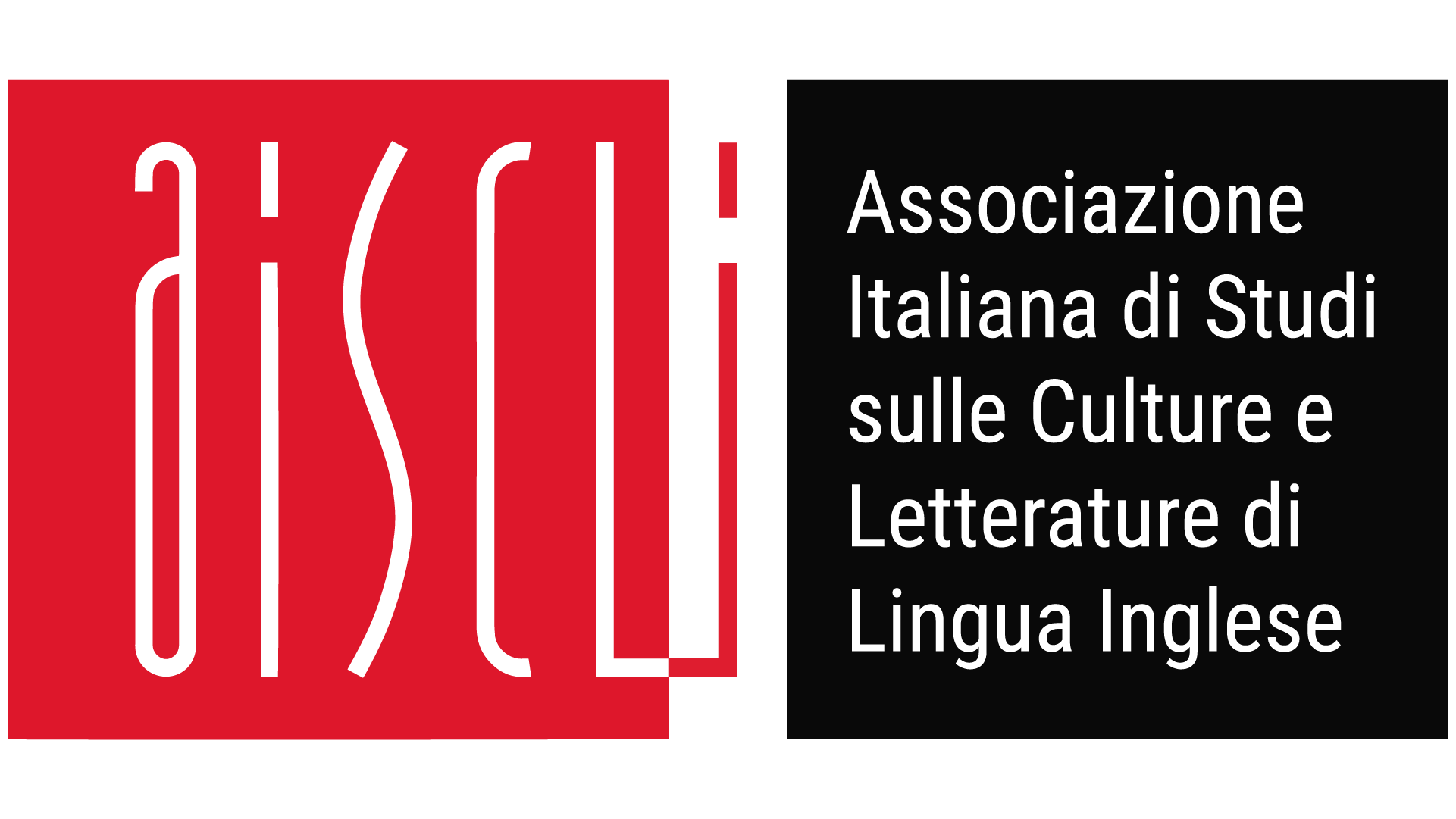
AISCLI
AISCLI is a cultural association whose purpose is to promote interest in the English-speaking post-colonial world. It aims at playing a critical and informative role locally, nationally and internationally and encouraging research on Anglophone literatures and cultures.
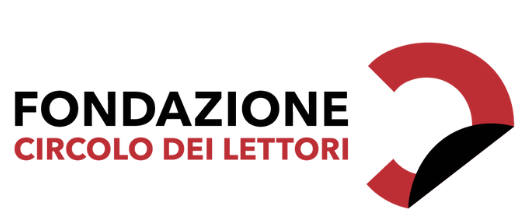
FONDAZIONE CIRCOLO DEI LETTORI
Established in Turin in 2006 by the Region of Piedmont, the Fondazione Circolo dei lettori creates and circulates culture each and every day.
contacts
Contacts
For further information, please write to:
EACLALS 2026 Organizing Secretariat:
e-mail:
Tel. +39-011-63.99.254
The conference is organized in collaboration with COREP. (www.corep.it).














 Prof. Sara Ponzanesi
Prof. Sara Ponzanesi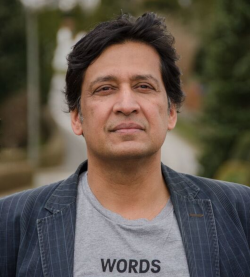 Prof. Tabish Khair
Prof. Tabish Khair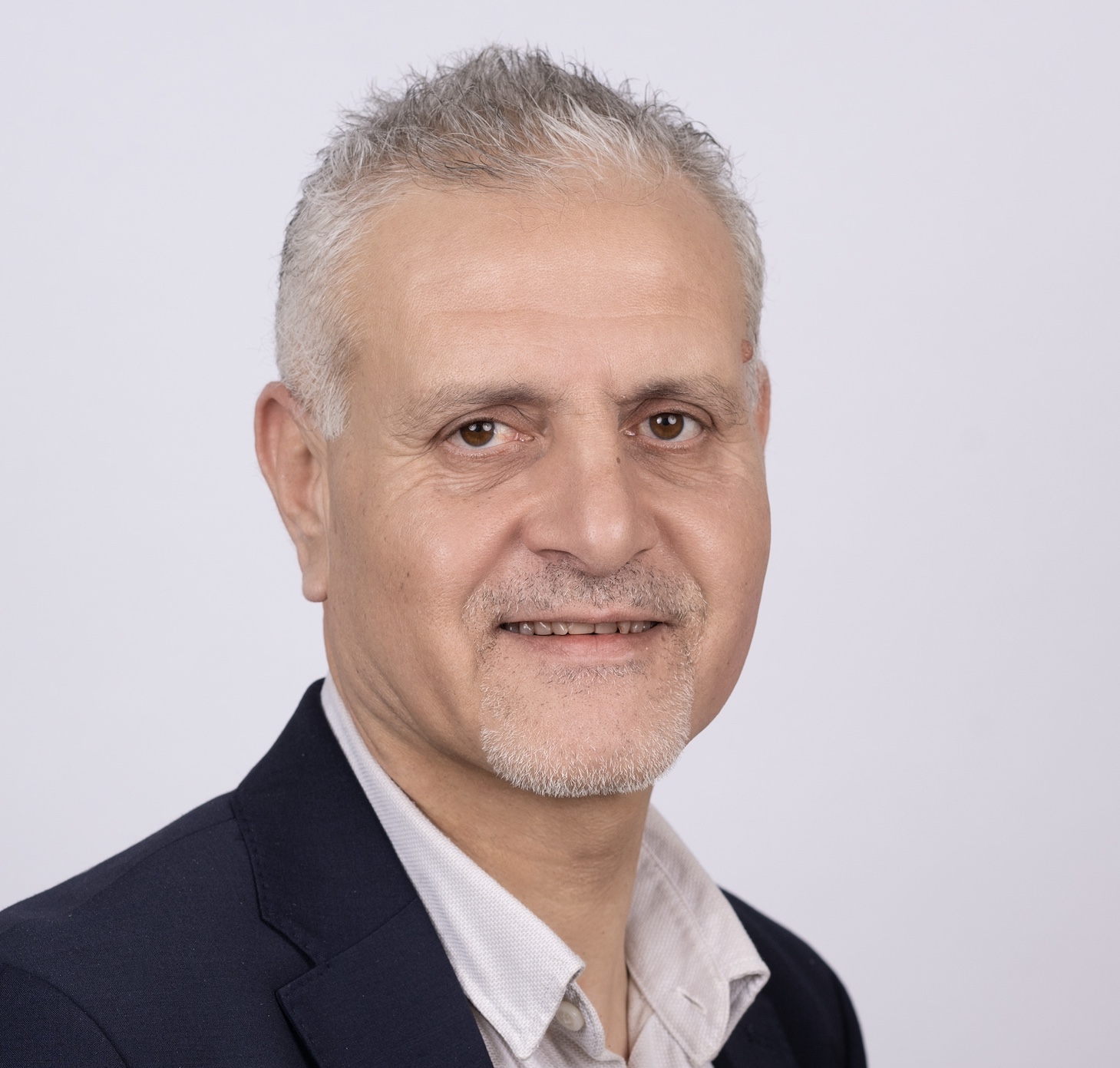
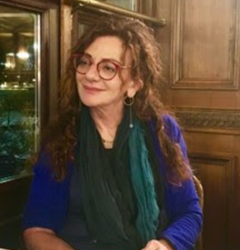

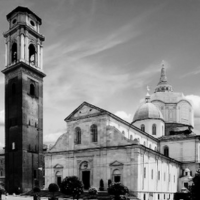
.png%20duomo.png) Duomo di Torino
Duomo di Torino